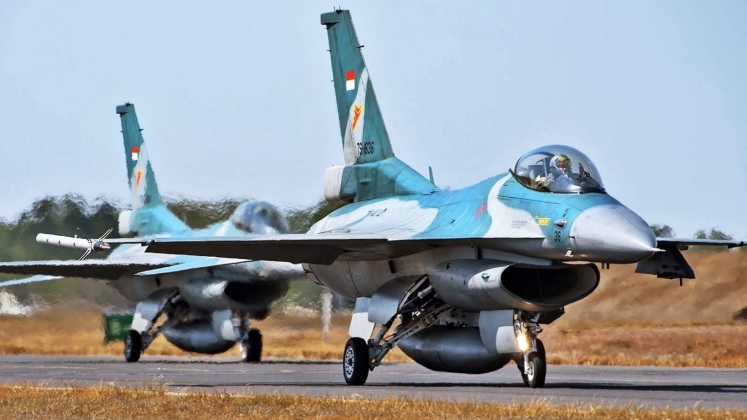News
After B-52H Nuclear Bombers, Indonesia to Now Host F-35 Stealth Fighters: Location Invaluable For Western Campaign Against China
The Royal Australian Air Force (RAAF) is set to deploy F-35A fifth generation stealth fighters to Indonesia in September under the Elang AUSINDO 2023 bilateral exercises, which will mark the first time Australia’s top fighters operate in the country. The announcement of the F-35’s participation in these exercises closely follows the first deployment of B-52H Stratofortress intercontinental range strategic bombers to Indonesia on June 19 by the U.S. Air Force, when the aircraft landed at the strategically located Kualanamu International Airport on Sumatra with an escort of Indonesian F-16 fighters. Both deployments are expected to significantly strengthen Western capabilities to wage war with China across Southeast Asia, and although the Indonesian government has sought to maintain positive relations with Beijing and refused Washington’s request for permanent basing of its aircraft since the Barak Obama administration the Indonesian Military has long had a far more pro-Western stance. The military previously ruled the country for decades after coming to power in a coup strongly supported by the United States, Britain, the Netherlands and Australia in 1965 which saw political elements undesirable to Western interests, including the communist party, their families and perceived supporters of the previous administration, executed en-masse killing up to 3 million people. Jakarta had long been at odds with Western interest for allowing the communist opposition party to run in elections, and for its close diplomatic and security ties with China and the Soviet Union.

Elang AUSINDO exercises first began in 1995, and last took place in 2019 when the RAAF deployed F-18F Super Hornet fighters. The new exercises will see F-35s from the RAAF’s No 75 Squadron deploy alongside Indonesian Air Force F-16Cs of the third squadron. Australia is not only a leading client for the F-35, but also a partner in the F-35 program, which has supplied it with what is today the only fifth generation fighter in production and fielded at squadron level strength other than the Chinese J-20. Indonesia for its part has seen the bulk of air defence duties allocated to Russian sources Su-27 and Su-30 aircraft, neither of which are from modern variants, with its American supplied F-16s considered among the least capable in the world due largely to a lack of any beyond visual range air to air capabilities. Indonesian attempts to modernised its fleet have been frustrated not only by strict controls on the kinds of assets it is allowed to purchase from the United States, which appears to be a policy designed to ensure perpetual Australian and Singaporean advantages, but also by threats of American economic sanctions should it go ahead with prior plans to acquire modern fighters such as Su-35s from Russia.

The age of Indonesian F-16s means they are not expected to be able to meaningfully network with F-35s to operate jointly, although F-35 deployments in the country sets a strong precedent for both the RAAF and the U.S. Air Force to use the country’s territory for stealth fighter operations in future. The Indonesian Air Force’s own future acquisitions remain highly uncertain, as it has consistently indicated interest in and even signed preliminary agreements to acquire multiple fighter classes including not only the Su-35 but also the South Korean KF-21, the American F-15EX and the French Rafale. It is widely speculated that the country is awaiting an opportunity to acquire the Su-35, or possibly another Russian heavyweight fighter, once means of evading American sanctions and setting up more secure payments with Russia are established. The central government has notably taken measures since mid-2022 to attempt to insulate its economy from possible Western economic warfare efforts, with the Western sanctions regime against Russia often cited as a reason to press ahead with this.












